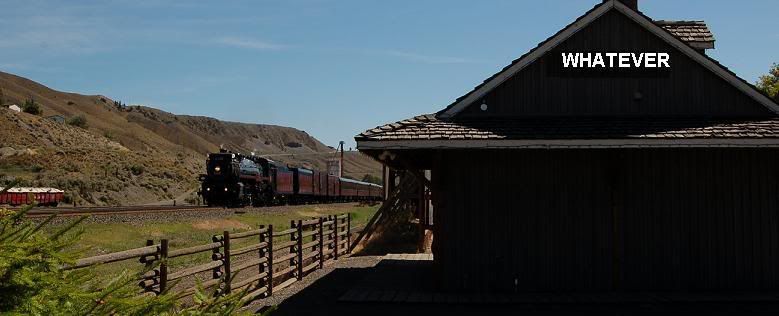// Playing The Blame Game
For your own help, Bob Goodenow represented the players in the NHL lockout.
Cam Cole
Vancouver Sun
July 29, 2005
OTTAWA - The players, to their everlasting shame, didn't hear the train coming until it was on top of them. They should have, but they were deafened by their own rhetoric. And then, there was no time to run and it was far too late to call lying in a fetal position an act of goodwill.
They were, as anyone could see, flattened.
Whom should they blame, then, if not themselves? Why, Bob Goodenow, of course.
Hey, it beats looking in the mirror.
Clearly, the man who led them first of all to riches beyond logic -- who convinced them that the owners were liars and that the game wasn't really losing money -- whose cocksure, know-it-all personality rubbed off on hockey's once-beloved players, fostering a sense of entitlement so infuriating that their fans hardly knew them any more -- had to go.
Whether he jumped or was pushed -- and reading between the lines Thursday, it was the latter -- the fact that Goodenow's departure came within seven days of the union's ratification of a collective bargaining agreement he could not possibly have supported adds a bit of poetry to the end of hockey's darkest year.
Poetry, in the sense that Goodenow went into these negotiations vowing that the players would never agree to a salary cap on his watch, and came out signing his name to that very thing.
A man of honour could not stay.
"What happened, following negotiations and ratification, was I sat down with the executive committee, and the decision was made that it would be best if the transition were made now rather than in the future," said Goodenow. "We just accelerated the process."
Thursday was not the time for recriminations, anyway.
It was an opportunity for Ted Saskin, Goodenow's longtime lieutenant and now successor, to pay tribute to the Michigan lawyer's hard work and dedication to the players' cause.
He'd get no argument from anyone, even his boss's fiercest critics, on that characterization.
Goodenow led the only way he knew how: with his chin out and his fists up.
It wasn't a style that was going to sit well through the next six years, when the mandate of the players and owners is to work together to build the business, each needing the other equally.
Goodenow was not cut out for co-operation. He was a work-against guy.
The most surprising moment of the afternoon came when Goodenow, whose detractors always felt had all the humanity of an eel, let down his guard and teared up when someone asked him about being left out of the latter stages of negotiation. It was known to most of the hockey writers, but Goodenow hadn't wanted it reported, that his mother died virtually as the lockout was ending.
Saskin's mother had died earlier in the negotiations. It was a human side neither man wanted to show, so when Goodenow briefly broke down in mid-thought yesterday, Saskin leaped in to finish his former boss's sentence -- a pretty good metaphor for what must take place now, over the six-year term of the CBA. Saskin must finish Goodenow's sentence and try to make chicken salad out of, well, what the players had thrust upon them.
But it wasn't just the end result that made Thursday's move necessary.
Goodenow had to go because he had looked at a blackened sky for three years, and called it sunshine. He had to go because he had lost all perspective, in his quest for every last dollar that could be squeezed from a broken system. He had to go because he never once acknowledged that a well-managed hockey operation in a devoted NHL market had a right to live, if it couldn't make money.
He had to go because his personal mission -- to make The Man pay through the nose, forever, for the duplicity of his NHLPA predecessor, Alan Eagleson -- had long ago been realized in full, only he couldn't see it.
He had successfully moved the pendulum all the way from an era of owners as plantation bosses and players as serfs to an era of outlandish player compensation in which owners, who provided the capital, were the only ones not making money. But it wasn't enough. He was blind to the very possibility that a league paying a $1.8-million average salary without significant television revenue might be out of touch with reality.
But mainly, Bob Goodenow had to go because those around him finally came to see what he could not, and took over the reins. In the end, they rejected his message.
The figures that the Arthur Levitt report produced last year, at the NHL's behest -- figures the union spent months denouncing as wildly inaccurate and untrustworthy, came to be accepted as largely factual. The salary cap came to pass. Not only that, the players themselves came to propose linkage between salaries and league revenues, another Goodenow never-never.
The 24-per-cent salary rollback, Goodenow's December throw-in meant to call the owners' bluff and get them to come off their insistence on a cap and linkage, was a foot in the door the NHL never relinquished. In the end, Gary Bettman's owners got the cap, linkage, two-way arbitration and the 24 per cent. The players got a $450,000 minimum salary and earlier free agency. Small beer, that.
So within a few days of their ratification vote last Thursday, the union's executive committee decided not to wait for Goodenow's $2.5-million-a-year contract to expire midway through this CBA. The players bit the bullet and bought him out, the same way NHL teams are buying out high-end, older players they can no longer afford under the cap.
The very players he made wealthiest are now dinosaurs, and so is he.
In the NHL's new world, the only fighting allowed is on the ice. That's no place for Bob Goodenow.








0 Comments:
Post a Comment
<< Home